How do you plan good lessons on homosexuality when resources only tell half the story? A call for proper representation in religious education textbooks

Written by Jonny Tridgell
Jonny began his career as a secondary school teacher in 2009 and has since been a head of sixth form, head of department and lead practitioner for EDI. He has also worked in teacher education as a mentor, curriculum tutor and general tutor on the University of Oxford PGCE. He completed his MSc in Education (Digital and Social Change) at Oxford in 2024. He is currently working as Equality, Diversity & Inclusion Data and Insights Officer at Jesus College, Oxford, alongside roles as a teacher, teacher educator and researcher.
Imagine you are planning a GCSE lesson on Christian beliefs about homosexuality, but you don’t feel confident about the topic. You might have a theology degree and a PGCE in religious education, but have never really studied queer theology, or maybe you are one of the many non-specialists delivering these lessons in the UK (Orchard, 2024). You’re not sure where to begin planning your lesson. Do you do a debate with the students? Perhaps you could do some textual study, but then which texts? You know that Christianity has often the basis for homophobia, but you also don’t want to suggest to your students that Christianity is prejudiced or bad. So, what do you do next?
You might look for shared resources made by a colleague or look online. You might use AI. One solution would be to use a textbook or revision guide endorsed by your exam board. Jackson et al (2010) found that many teachers used textbooks just for that and in my experience as an educator and researcher, many teachers (including me), still do. Textbooks are helpful for pitching, but also, geared as many are to exams, provide a great deal of reassurance. However, there is a risk to this, because RE textbooks in the UK tend to sanitise and essentialise Christian beliefs about homosexuality and to present these through a Eurocentric lens.
In a recent paper for The British Journal of RE (Tridgell, 2025), I found that textbooks represent Christian approaches to homosexuality in a way that has been sanitised, excising those churches that promote explicitly anti-LGBTQ+ views. These textbooks also generally excluded African Christianities and churches, portraying African Christians as recipients of aid or evangelism only, not as theologians. One reason for this might be a desire to promote community cohesion by only presenting socially acceptable or “positive” views of Christianity as real Christianity (see arguments made by Smith et al, 2018), even if this presents a view of Christianity that is false. The Eurocentric approach here is perhaps even more troubling, given the way this might exclude those whose experience of Christianity is not reflected in these textbooks.
As a gay RE teacher who studied Christian approaches to homosexuality, I can plan these lessons carefully and accurately, and I feel confident about balancing the need for academic integrity with keeping students (and myself) safe in the classroom. My years teaching about Christian attitudes to homosexuality have taught me hard lessons about framing; in my view, it is always best to treat this as a theology lesson, rather than an ethics one – that is, thoughtfully examining different Christian views across the breadth of the religion but never debating whether it is okay to be LGBTQ+ or if homophobia and transphobia are allowed. Importantly, I am not trying to criticise those who lack this confidence or this experience – I understand why someone might reach for a textbook to help plan this lesson – but I am critical of publishers who put out resources that fail to properly help with this planning. RE/RS teachers – especially those who have other specialisms – need proper support and guidance about what to teach and how to teach it. In short, RS/RE textbooks should:
- Include the full range of Christian views of homosexuality, including those that advocate for conversion therapy or other forms of anti-LGBTQ+ violence
- Include Christianities (both anti-LGBTQ+ churches and those that are affirming, along with those in between) from across the world, including Africa across all areas of Christian life.
- Recognise the inherent “messiness” of religion, and that belonging to a denomination does not mean someone’s personal beliefs necessarily fully align with its official teachings
- Frame lessons on LGBTQ+ people through theology rather than ethics; it is not safe to debate the existence of LGBTQ+ people nor is it reasonable to ask whether Christianity as a whole is homophobic; better to evaluate how a text is being used, for example, or ask why churches might have different views.
If you are the teacher I described, I would advocate caution and some reflection on whether the resource you are using really reflects the full story. If you are a textbook publisher or academic resource-maker, I hope this serves to call you in; community cohesion requires us to do epistemic justice (Fricker, 2003) to all those in our community – it is not served by pretending the world is not as it is. After all, how can we champion LGBTQ+ liberation and decolonisation if we only tell half the story?
Jonny’s article “Sanitised, essentialised and Eurocentric: an analysis of the (mis)representation of Christian beliefs about homosexuality and African Christianity in English RE textbooks” has been published Open Access here.
Reflecting on the real-world application of my gender justice research
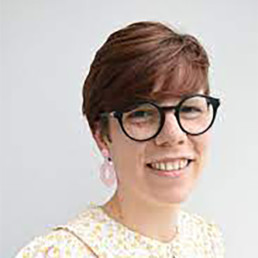
Written by Angharad Morgan
Angharad is a Secondary Social Science teacher in Newcastle and Gender Action Programme Lead. She has also recently taken on a Research Assistant role at Liverpool University, working on the Men4Change impact project. Alongside this, Angharad is undertaking her PhD in Education and Social Justice at Lancaster University. Her research uses feminist and queer theory to look at the role of male facilitators in challenging models of masculinity. Angharad is President of the NEU Newcastle District and will be Assistant Branch Secretary from September. Any spare time is spent outdoors with her 8-year-old daughter, and her ability to read and walk simultaneously saves a lot of time.
In 2019, at the age of 29 I decided to retrain as a teacher. I’d become a single mother at 26 and that slightly unexpected turn of events changed my life trajectory forever. I’d always been interested in education and teaching, something which perhaps I didn’t realise initially; from volunteering with classes in school to joining the Aimhigher programme whilst at university.
In my short time as a teacher, I had seen an apparent lack of justice, so this inspired me to act. When I received my acceptance letter onto the PhD in Education and Social Justice in 2022, I wept with joy and didn’t realise how much there would be to learn. It was a long way from my MSc in forensic psychology 11 years prior. I had the opportunity to write on a range of topics and my perceptions were challenged and understanding tested by each passing paper. Now, in 2025, I am halfway through what I have affectionately named “The Big One”, a modest 45,000-word thesis which will soon qualify me to be a Dr that responds in an emergency (albeit a social justice one).
My passion has always been gender justice, and I believed that I would spend my time working with women and girls and their experiences of navigating the education system. However, I had also spent a lot of time reading and talking about notorious influences and began to reflect on the types of masculinity they promoted. I noticed several programmes that worked with men take centre stage in recent years. I therefore wanted to gain an insight into how the male facilitators working in gender justice go about their work.
- How do they navigate models of masculinity?
- What does masculinity mean to them?
- How do they perceive themselves in a traditionally female-led environment?
- What motivated them to want to do that work?
- How do they recognise intersectionality?
Over the past 9 months I have been exploring the answers to these questions with 12 male youth facilitators working in the North of England. I used semi-structured interviews and photo-elicitation (an arts-based method in which participants were asked to provide a photo of what they perceived to represent masculinity) to explore facilitators experiences in the gender justice space. I was incredibly lucky with the participants’ insight and honesty.
As a teacher, it is important that any research I do has practical applications in an educational space. It’s all very well having theories, but they need to be practical and accessible to educators. In my recent talk at the RWBA’s Empowering Youth Conference I was asked some fantastic questions, but there was one that I didn’t get a chance to respond to, around the real-world application of my research. As my work has evolved, I’m beginning to understand it’s possible impact and application in education in the following ways:
- The importance of collective action for gender justice to truly be a reality. All educators need to be equipped to respond to challenging topics and feel confident to embed this in their practice. This means that teacher training and universities need to step up and prioritise discussions of gender, sexuality, mental health and healthy relationships with students (and colleagues!).
- Relationships with young people based around their exploration, questioning and critical thinking are key to opening up conversations. Many educators would aspire to this, but there needs to be an environment and culture within education that allows this to happen. How can educators be given the capacity to create these learning spaces?
- Although my research has focused on the role of male facilitators, over 75% of staff in schools/nurseries are women. Therefore, we need to identify how we can continue to have these open conversations with young boys, whilst also recognising that many of these conversations will be facilitated by women. Many schools do not have the budget to bring in external facilitators and male teachers cannot be expected to be experts on these topics. Therefore, female educators need to be engaged in these discussions as well.
- The importance of identity, belonging and reflection. My participants vocalised how this work has made them reflect on their positionality. As educators, we must reflect on our own positionality in our educational space, considering what brought us there. We can also explore our influences and how this impacts how we respond to young people and colleagues around us. It can be easy in these discussions to ignore the differing identities and experiences of the people we teach and work with.
I’m looking forward to further analysing my interviews over the next year and I hope that my work will add further insight into how we can continue to grow the gender justice movement at a time when these discussions are being silenced.
Diversity, Equity, Inclusion, and Belonging in Leadership: Shaping the Future of the Teaching Workforce
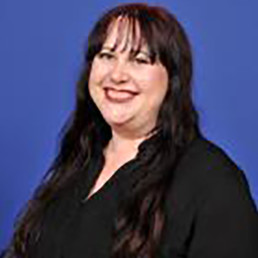
Written by Susi Waters
Susi Waters, Operations Manager at Norfolk Research School; the Research Schools Network (RSN) Regional EDI Link (East of England and East Midlands); and Operations Manager and ITT Strategic Lead at the Julian Teaching School Hub.
In today’s educational landscape, fostering diversity, equity, inclusion, and belonging (DEIB) feels essential for creating a supportive and effective teaching workforce that reflects the lived experiences of the students we serve. This blog post offers some thoughts on the importance of DEIB in educational leadership and highlights the challenges and opportunities for improvement.
Understanding Intersectionality and Privilege in Leadership
One of the key considerations in promoting DEIB in education is recognising intersectionality — the overlapping and interconnected nature of social categorisations such as race and ethnicity, gender, disability, and socioeconomic status. Leadership roles in education have historically been dominated by white cisgender individuals without disabilities, but there’s a growing call for more inclusive representation.
Many of us are familiar with the concept of “checking our privilege,” which can sometimes trigger defensiveness. It’s helpful to remember that, in this context, “privilege” refers to an absence of disadvantage. Having “white privilege” doesn’t equate to guaranteed success; it means that one’s skin colour hasn’t posed societal barriers.
Chris Hildrew, a headteacher in Somerset, articulates this experience well:
“I am usually in the majority. I joke about how I have the privilege full house: White. Male. English. Straight. Cisgender. Middle class. […] When I speak, people listen. They always have. I expect them to.“
Data from Edurio(2021) and NFER (2024) reveal that the representation of non-white educators, disabled individuals, and LGBTQIA+ educators remains low in leadership positions. Addressing these disparities calls for thoughtful recruitment, retention, and career development strategies.
The Role of ITT Recruitment in Teacher Diversity
Recruiting a diverse teaching workforce starts with how we market initial teacher training (ITT) programmes. While people of colour are overrepresented among applicants for ITT, they are significantly underrepresented in the teaching workforce overall. In fact, 60% of schools in England had an all-white teaching staff in 2021 – 22, with 86% having an all-white senior leadership team.
Research by Dr. Gabriella Beckles-Raymond (2020) underlines the importance of targeted recruitment strategies aimed at attracting African, Caribbean, and Asian teachers. Schools and training providers might benefit from adopting inclusive messaging and outreach initiatives to encourage individuals from underrepresented backgrounds to explore teaching careers.
Recruitment should be thoughtful. For instance, we could consider:
- Do providers offer pre-application support, like explaining the English school system to those who didn’t grow up here?
- Are interview processes truly inclusive? Do they provide interview questions in advance or offer online options?
- Is the interview panel diverse in terms of race, gender, and age?
Making sure that trainee teachers have the right support means addressing barriers that can impede career progression. Access to mentorship, leadership training, and workplace policies that foster inclusion are all important aspects to think about.
Making Teaching a Sustainable Career for All
For many educators, especially those from marginalised groups, remaining in the profession long-term can be tough. Research from BERA (2019) on LGBTQIA+ teachers and the “Missing Mothers” project (2024) highlights how workplace culture, lack of support, and discrimination can push talented educators away from the profession.
To encourage sustainability in teaching careers, schools should implement policies that accommodate diverse needs, such as:
- Support for teachers going through menopause.
- Flexible work arrangements for primary caregivers.
Anti-discrimination policies that protect neurodivergent and LGBTQIA+ individuals.
Leadership: Breaking Barriers and Creating Opportunities
Leadership in education needs to evolve to better reflect the communities it serves. Disparities persist; for instance, men are twice as likely to take on leadership positions as women, even though women comprise the majority of the teaching workforce. Gaps remain in representation among racial and ethnic minorities, disabled individuals, and LGBTQIA+ professionals.
Educational leaders can play a significant role in advocating for equity by:
- Sponsoring and mentoring diverse talent.
- Implementing transparent hiring and promotion practices.
- Encouraging conversations about privilege and systemic barriers.
- Revisiting senior leadership recruitment processes to ensure job descriptions and interview processes don’t unintentionally place women, disabled individuals, or caregivers at a disadvantage.
Moving Forward
We should ask ourselves: are we really setting up all teachers to enjoy a sustainable and fulfilling career?
Rethinking our approach to leadership is key — not just at senior levels but also in shaping the next generation of educators. There are alternative pathways to leadership in education beyond headteacher roles, such as Teaching School Hubs, Research Schools, and ITT leadership. These roles often offer flexibility, hybrid options, and meaningful opportunities to affect educational policy.
Ultimately, if we don’t act, the next generation of teachers will mirror those who currently remain in the system. Without deliberate attention and change, we risk perpetuating a cycle where leadership remains uniform. However, by embracing diversity, equity, inclusion, and belonging, we have the potential to create a teaching workforce where all educators feel valued and every child sees themselves reflected in their role models.
To cultivate a more inclusive educational system, leaders should commit to ongoing education and implementing best practices. By embracing these principles, we can nurture a teaching workforce where diversity is celebrated, equity is upheld, inclusion is practised, and belonging is experienced by all. The future of education rests on leaders willing to challenge the status quo and promote DEIB at every level.
This blog is a summary of a session that Susi delivered as part of Derby Research School’s Change Champions conference in autumn 2024; it forms part of the RSN and Norfolk Research School’s ongoing work around EDI and developing diverse voices.
All sources and recommended reading can be found here and you can watch the full session here.
Making mutineers? Why building digital citizenship in the data age is crucial for educators promoting diversity, equity and inclusion

Written by Jonny Tridgell
Jonny began his career as a secondary school teacher in 2009 and has since been a head of sixth form, head of department and lead practitioner for EDI. He has also worked in teacher education as a mentor, curriculum tutor and general tutor on the University of Oxford PGCE. He completed his MSc in Education (Digital and Social Change) at Oxford in 2024. He is currently working as Equality, Diversity & Inclusion Data and Insights Officer at Jesus College, Oxford, alongside roles as a teacher, teacher educator and researcher.
Imagine two sailors. The first navigates his life on ship with diligence and skill, but little concern for how this affects others. His approach to the sea is entirely instrumentalist. The second sailor takes a different approach; she knows her job as well as the first, but she is awake to the power structures that surround her, the web of exploitation and trade that underpin her work. She is committed to making change and serving justice, by mutiny if she must.
Here, following Schober (2014), the sea stands in for the digital world. Our lives are increasingly lived digitally, with our actions and interactions transformed into data that is tracked, sold and mined for the benefit of multinational corporations. Many of us take an instrumentalist approach to this, ignorant (by choice or by indoctrination) of the consequences this process can have, especially for those often rendered invisible by society. This includes those marginalised in our communities and those in the Global South, who bear the brunt of exploitative extraction processes that can involve appalling human rights abuses and untold exacerbation of the climate crisis. Studies have shown that datafication negatively affects those who are already harmed by society (e.g. Zuboff’s 2019 Surveillance Capitalism; Eubanks’ 2018 Automating Inequality) and there are concerns about how schools collect and use data, as well as who funds and designs the programmes we use in our classrooms.
How do we encourage students to become more like the second sailor? There is a great deal of excitement about building digital skills, including in relation to AI, but we need greater engagement with what it means to use the digital responsibly. Shannon Vallor’s excellent Technomoral Virtues (2016) applies virtue ethics to existing online and this could lay groundwork for how we teach young people to be digital citizens, preparing them to make informed choices about the technology they use and how they treat others in the digital sphere. This is not about frightening young people or turning them off technology, but rather teaching them to understand the responsibility they bear and that what they do online has real, physical consequences. Vallor notes the need for us to achieve a new “practical wisdom” that includes an understanding of the digital. This is also where the link to citizenship is crucial – the online world is vast and interconnected and we must encourage young people to see themselves as members of an international community, with attendant responsibilities.
What does this look like in reality? Research is increasingly critical of one-off educational experiences like assemblies or drop days, given that these often have limited impact over time. Rather, it is crucial that we as teachers weave this digital citizenship education into our students’ lives. This might be by developing checks before we recommend or adopt new technology (e.g. asking who funds this and what data will be gathered); this could happen at the level of senior leaders or in our own classrooms. We might model the responsible and careful use of search engines and AI, noting the ways that both can reproduce inequality (as shown harrowingly by Noble’s 2018 study The Algorithms of Oppression). This might also include teaching explicitly about the challenges and benefits of digitalisation and datafication in our lessons, perhaps with an RE lesson considering what it means to be human or a mathematics lesson on how statistics are used online. Lessons can be learned from work done on decolonising curriculum here, as well as the ways in which colleagues incorporate other duties like SMSC, CEIAG and fundamental British values. Digital citizenship can and should become part of the goal of schools in the UK, alongside the more instrumentalist approach to digital skills being promoted so widely already.
As life becomes increasingly online – as we all become sailors on this wild ocean – it is crucial that we are preparing our students to look out for those who are often already marginalised or forgotten, driven out of sight and therefore out of mind. No one sailor can do this on her own – she needs a teacher.
If you’re interested in hearing more about Jonny’s work or how to incorporate digital citizenship into your teaching, his MSc thesis “Making Mutineers: Reimagining religious education for the promotion of virtuous digital citizenship” can be read here. You can also sign up to the in-person programme Jonny is running with the University of Oxford’s Bodleian Libraries here.
Empowerment, Inclusion, and Storytelling: A New Approach to History Education
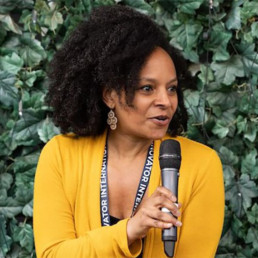
Written by Dana Saxon
Dana Saxon is an educator, writer, and family historian who seeks to address global inequities in education. Her organisation, Ancestors unKnown, changes the way pupils learn about history, themselves, and the world around them, providing opportunities for them to learn about marginalised histories and stories from their own communities.
Traditional history education can sometimes feel stale and uninspired – a series of dates and old white men who seem to have little or no relevance to the lives of today’s children. This approach, heavily focused on Eurocentric perspectives and the accomplishments of a select few, can leave many students feeling excluded and disconnected from the past.
But, as even Ofsted explained in their 2023 report about history education, “Every pupil is entitled to encounters with the richness of the past and the complexity of historical enquiry”.
A New Approach: Student Stories at the Centre
What if we reframed history education? What if we centred the learning experience around the unique stories of each child?
This is the vision driving Ancestors unKnown, a unique approach to history education that empowers young people by weaving their personal narratives into the larger context of local and global history.
At the heart of our methodology lies the belief that every child’s story is a valuable piece of the historical puzzle. We encourage students to explore their own family and community histories through oral histories and archival research. By interviewing elders, collecting family artefacts, and delving into local archives, children uncover the unique stories of their ancestors and the elders in their community, including their struggles, their triumphs, and their contributions to society.
Then, while our students are empowered to personalise historical research, we help them connect these personal narratives with the untold and often marginalised histories that have shaped our world. As a result, students learn about the contributions of diverse communities, stories about migration, struggles for social justice, and other hidden stories that lie beneath the surface of conventional historical narratives.
The Benefits of Ancestors unKnown
Our integrated approach fosters a profound sense of belonging and empowerment. When children see how their own stories connect to the larger historical narrative, they develop a deeper understanding of their place in the world. They begin to see themselves as active participants in history, not just passive observers.
Furthermore, by sharing their family histories with their classmates, children gain valuable insights into the diverse experiences and perspectives of those around them. This fosters empathy, understanding, and a greater appreciation for the people and communities around them.
With our approach, Ancestors unKnown is making history curriculum more inclusive and equitable. By centring the experiences of diverse communities and highlighting the contributions of marginalised groups, we challenge traditional narratives and create a more representative understanding of the past.
“Our community interviews were really successful!” shared a primary school teacher about their Year 5 Ancestors unKnown project.” We interviewed adults from South America, England, France, China and Nigeria! The children asked some really interesting questions and really enjoyed listening to the different family and community stories.”
Bringing Ancestors unKnown to More Classrooms
Ancestors unKnown provides schools with a toolkit and ongoing support to implement our programme during one school term for Y5 or Y6. We also offer teacher training, parent/community engagement workshops, and access to a network of local historians and storytellers as guest lecturers.
We believe that by empowering teachers, students, and their families with the tools and knowledge to uncover their own historical narratives, we can create a more inclusive and engaging learning experience for everyone.
Ready to transform history education in your school? Learn more about our programme and contact us to bring Ancestors unKnown into your classrooms.
Let’s work together to empower the next generation of historians to tell a different, more inclusive story about the past – a story that includes their ancestors.
How My Experiences with ADHD in Different Workplaces Led to a PhD and Training Programmes for Businesses and Schools

Written by Steve Ollington
ADHDer studying the pros and cons of ADHD in the workplace, with 19 years in digital marketing, and more recently running ADHD training.
I’m Steve Ollington, and I’m currently undertaking a PhD at Swansea University, supervised by Professor Brian Garrod, focusing on ADHD in the workplace. My research journey started with a personal observation: despite having a consistent skill set and high level of experience in my profession, I noticed that my performance varied significantly depending on the workplace environment. In some settings, I thrived; in others, I struggled to achieve the same level of productivity and job satisfaction. This discrepancy led me to examine how different workplace environments interact with ADHD traits, not just in terms of challenges, but also in enabling the often-overlooked strengths associated with ADHD.
Observing the Role of Environment in My ADHD Performance
In some roles, I was given autonomy and flexibility, which allowed me to excel. I had the freedom to approach tasks creatively, was trusted by managers, and felt supported by colleagues who understood different thinking styles. In these settings, I could harness the strengths that come with ADHD, for example innovative thinking and alternative (but effective) problem-solving. My performance was high, and I felt truly engaged in my work.
In other workplaces, however, I encountered rigid structures and strictly enforced processes with little flexibility. There was often limited understanding of alternative approaches to work, and I felt pressured to conform to methods that didn’t align with how I function best. This rigid structure amplified the challenges of ADHD, while stifling my ability to bring my strengths to the forefront. In these environments, I found myself struggling as a result.
Recognising the Potential of ADHD Strengths in the Workplace
Through these contrasting experiences, I realised that while my ADHD challenges remained constant, my ability to utilise my strengths was significantly influenced by the environment, including the acceptance of my differences by those around me. Some workplaces allowed me to maximise my capabilities, while others hindered them. This insight led me to pursue a PhD, focusing on ADHD in professional environments. Rather than just examining the difficulties faced by ADHD employees, I wanted to highlight the strengths and explore the specific workplace conditions that either foster or inhibit these strengths.
Research supports the notion that ADHD brings unique strengths. Dr Heiner Lachenmeier’s book ADHD and Success at Work, for instance, describes how people with ADHD often have a “wider breadth of association” due to a reduced filtering of incoming information, which enhances creativity and problem-solving abilities.
Research by Dr Nancy Doyle on neurodivergence in the workplace, combined with studies on creativity and imagination by White and Shah demonstrate that ADHD individuals can excel in environments that embrace cognitive diversity. Creativity, for instance, is often heightened in ADHD individuals due to the way they process information, thinking beyond traditional boundaries. However, these strengths can only be fully realised in workplaces that are flexible, supportive, and open to alternative working styles.
Dr Edward Hallowell also discusses this in his book Driven to Distraction at Work, noting that ADHD can fuel high energy, hyperfocus, and enthusiasm when supported in the right way. Additionally, Prof Amanda Kirby and Theo Smith, in The Power of Neurodiversity at Work, as well as Leanne Maskell in ADHD Works at Work, advocate for environments that understand and embrace neurodiversity, highlighting the benefits employees with ADHD can bring to the workplace.
Developing Targeted ADHD Training Courses
This studying inevitably led to increasing my own understanding of ADHD and its impact on my work, and the more I learned, the more it became evident that many workplaces lack the necessary understanding and support for neurodivergent employees. Despite increased emphasis on diversity and inclusion, neurodivergence (including ADHD) is still very often misunderstood, with much of the current training being very broad and general, not focusing enough on individual conditions. I saw, and experienced, the need for specific training to address not only the challenges but also the strengths associated with ADHD, and the resulting understanding from workplace peers who might have neurotypical only expectations of skills like communication and approaches to tasks.
This realisation led me to transform my PhD literature review into two targeted training courses. The first course is designed for businesses, specifically aimed at training managers, HR, and colleagues of people with ADHD, focuses on understanding ADHD from a balanced perspective, covering how ADHD employees think differently, the areas in which they may need support, and how workplaces can harness their unique strengths. It encourages flexibility, trust, and space for creativity, which are key to enabling ADHD employees to thrive.
The second course is geared towards educators, providing ADHD training for teachers, TAs, and SEN staff, to equip them with the knowledge to reassure ADHD children and teenagers on how ADHD doesn’t have to limit them as they grow up, and that in fact they their ADHD also brings strengths, such as creative thinking and resilience. By emphasising these positive traits, educators can help ADHD students see their future as one filled with potential and opportunity.
Challenging Hair Discrimination Through Racial Narratives, Industry Knowledge on the Economics of Hair and Counter Literacy Equality, Diversity Strategies

Written by Dr Pamela Odih
Pamela is a senior lecturer in Sociology within the Sociology department at Goldsmiths University of London. Her research specialises human rights communication and the significance of me/space to the regulation of subjects and construction of gendered subjectivity with specific regards to organisational analysis and educational policy.
On 27th October 2022 the Equality and Human Rights Commission (EHRC) published new guidance aimed at ensuring that: “Pupils should not be stopped from wearing their hair in natural Afro styles at school” (EHRC 2022). The guidance is supported by resources that are “endorsed by World Afro Day and the All-Party Parliamentary Group for Race Equality in Education” and are designed to assist school leaders in ensuring that “hair or hairstyle policies are not unlawfully discriminatory” (ibid.).
In October 2024, having successfully applied for a British Academy and Leverhulme Trust small grant, I began my empirical study which is entitled “Challenging Hair Discrimination Through Racial Narratives, Industry Knowledge on the Economics of Hair and Counter Literacy Equality, Diversity Strategies”. Research Focus: The proposed research is partly an impact analysis of the application of EHRC resources, into school policies and the responses of school leaders to the suitability and adaptability of these policies.
An additional focus of the study is to envisage the scope and form of guidance on anti-race-based hair discrimination that informs young people as consumer citizens in respect to their cultural heritage of hair sculpture as an expression of racial belonging. I am currently interviewing UK and USA NGOs, charities and human rights legal practitioners to ascertain the impact of their activism in respect to PSHE and citizenship studies educational policy and race equality legislation.
If you have such involvement in this subject area, I would greatly appreciate interviewing you. Please, in this regard, contact me at Goldsmiths University, where I am a Sociology Senior Lecturer. The outcome of the research is scheduled to be disseminated in academic journals and the creation of an open access teaching resource to support consumer citizenship secondary school lessons.
I am also collaborating with the spoken poet Rider Shafique to create three long-form poems for presentation at scheduled multiculturalism festivals within the academy; we also envisage co-creating and illustrating a series of children’s books. I’ll post again as the research progresses and shall provide some interim findings which I hope will be useful for your respective projects.
How to lead a diversity research group
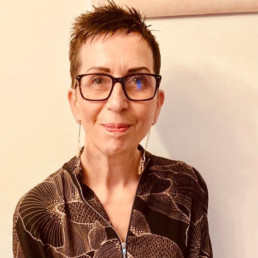
Written by Jayne Carter
Jayne is the Director of Ignite Education Ltd, providing consultancy for practitioners within the Early Years & Primary sector. She uses coaching a a model for change, facilitating professional conversations which are focused on empowering others & generating growth in knowledge & skills.
As part of the L.E.A.D Teaching School Hub’s extensive offer for EDI, I was invited to lead a diversity research group based on Bennie Kara’s fantastic book: Diversity in Schools. This blog is intended to support others who may wish to run similar groups for teachers and school leaders.
The research group was structured around one session per month for each book chapter. It worked well for each participant to read the focus chapter in preparation for the meeting, to be ready to discuss their reflections and implications for their own practice.
Discussions were facilitated around the key messages included in each chapter with the addition of extra resources focused on the needs of the group.
The aims of the research group included:
- To use research & literature as a tool for school improvement
- To develop a culture of peer-to-peer support & critical analysis
- To implement key strategies & approaches at a whole school level
Some of the attendees wanted to focus on whole school implementation, whereas others wanted to improve their own subject knowledge in preparation to share at school.
Each session included a planned gap task based on the focus of the chapter as well as an individual gap task which was identified by each attendee in order to meet the needs of their school.
For example, the third session focused on the chapter ‘How can we create a diverse classroom?’ Everyone carried out the audit included in the book. Individual gap tasks that were chosen included;
- sharing UNESCO inclusion research with members of their SLT
- exploring the free trial of Lyfta as a whole-school EDI resource
- considering how to organise their seating plan to ensure inclusivity
- evaluating the use of cold calling/trio conversations in their classrooms.
Time was planned into the following sessions to discuss reflections from the individual gap tasks and all resources were included in a workgroup padlet. The padlet worked well to ensure that everyone had constant access to key resources/research. It also provided an effective means of communication between meetings.
Being able to meet frequently with attendees helped me as a workgroup lead to understand the priorities for each school and what was important to them. As the meetings progressed, I was able to structure the sessions to become even more personalised to the group’s needs, with additional research and tools being shared and added to the padlet.
Over the seven sessions, attendees enhanced their EDI improvement plan or developed their own EDI plan. The next steps identified after each chapter supported these improvement plans by providing structure and focus.
During the final session the overall impact of and reflections about the workgroup were collected:
- All attendees found the structure of the workgroup useful as it moved from a training session to meetings which were collaborative and supportive of an action research improvement model.
- Attendees liked the planned gap tasks; especially the opportunity to carry out a shared task, which helped shared discussions but also a gap task which was personalised and prompted change at a school level.
- All attendees noted that the additional resources sourced and added to the padlet were valuable with everyone committing to using the padlet next academic year.
As the workgroup lead, the opportunity to guide attendees into analysing research was valuable as it gave me a useful reminder of day-to-day school priorities. One of my own personal outstanding reflections was the knowledge that the plans developed would be sustained as they had been developed carefully and with the vision of not only what needed to be in place but why.
My thanks to Bennie Kara for creating such an accessible and informative book. I hope that this blog encourages others to lead more reading groups or research groups on diversity in schools across the sector.
Committing to a queerer future in the university
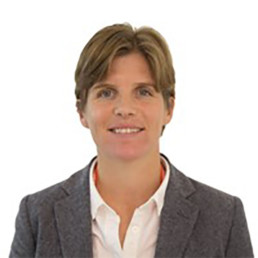
Written by Alex Baird
they/them
Before moving to the Higher Educator sector seven years ago, I worked in various schools for over twelve years, latterly as Director of Sport. At the University of Bedfordshire I am a Senior Lecturer in Sport and Physical Education, an EDI Lead, and the Vice Chair of the LGBTQ+ Alliance staff network. I have just finished an EdD at UCL and the research I write about here constituted my EdD thesis.
In the process of moving from teaching in schools to lecturing in Higher Education (HE) and then embarking on a doctorate, I have been encouraged to read, reflect, and write more. I have gravitated towards my LGBTQ+ lived experiences and perspectives and I find myself increasingly motivated to carry out LGBTQ+ themed research. Being a LGBTQ+ researcher encompasses treading a different and uncertain path. In anticipating a few negative reactions to my research or worse still not being heard at all, I will attempt to speak calmly and clearly in order to bridge a connection and appeal to the shared interests that we might have between us.
LGBTQ+ leadership has often been excluded from UK HE, HE leadership research and wider leadership research, meaning leadership is narrowly understood (Lumby & Moorosi, 2022; Thomson, 2017). The individualistic, fixed, and binary conceptualisations of leadership, also enable and maintain prevailing power structures and inequalities (Ferry, 2017). For this reason, I was excited to hear about a proposed LGBTQ+ leadership development programme within the specific context and current climate of UK HE and further still when I was given access as a researcher to query leadership and leadership development.
The LGBT Leadership Development Programme I attended was delivered within one post-92 university and consisted of three formalised classroom days and individual mentorship. I had not anticipated, since I was not employed at the host university, being a participant as well as observer on programme days. However as soon as I arrived on day one, attendees drew me into the group and session activities. I tried to extend a reciprocal level of openness about my personal and professional experiences while balancing my role of observer, being interested without becoming too active. I learnt to wait a while and let other attendees ask a question before I did. I was invited to attend five further socials and three LGBTQ+ network events which brought me even closer to attendees’ lives. Attendees willingly engaged in interviews and I became aware of how their voices were entangled with other voices, the atmosphere of the programme’s queer space, their perceptions of the wider university, and their loyalty to the programme and its survival.
The energy, lightness, and freedom of the programme’s queer space produced new ways of thinking about, seeing, and enacting leadership. The community of LGBTQ+ attendees who came together (which included both academic and professional staff) facilitated intergenerational queer knowledge sharing amongst LGBTQ+ staff and offers an example of how distributed leadership and discussion works in practice. LGBTQ+ leadership was conceptualised as listening to, valuing, and developing people, and challenging inequalities by voicing an alternative perspective. A form of leadership which is relational, collective, creative, temporal, and offers some resistance to the negative pressures of neoliberalism. Enacting LGBTQ+ leadership was seen as being different (at times) from management rather than the two being interchangeable terms; attendees sheltered their team from or utilised market forces in UK HE to support inclusion and recognised that leadership did not necessarily require an authority role.
I know of three attendees who were promoted during or shortly after attending the programme however this overlooks the longitudinal, curvilinear, and wider outcomes for both attendees (mental wellbeing, career satisfaction, and career direction) and the organisation (development and retention of diverse talent). Instead of assimilating or conforming to normative versions of leadership, LGBTQ+ lives were attached to leadership with growing pride and joy. Crucially, though, the attendees in this queer space reflected upon and redefined the meaning given to authenticity (Fine, 2017), which was viewed by some attendees as beyond an ‘outness’ (recognising the nuances involved in this act), rather knowing oneself (an ongoing process) and embracing this. Whilst Authentic Leadership Theory (Avolio et al., 2004) fails to consider the complexities of relational and contextual factors, the attachment of this concept to the LGBTQ+ leadership development programme offered personal benefits to LGBTQ+ attendees’ wellbeing and leadership potential (Fletcher et al., 2024) and encouraged qualities in their leadership, which have been identified as being essential to UK HE (Spendlove, 2007; Bryman & Lilley, 2009).
The programme and LGBTQ+ mentorship readdressed feelings of powerlessness in the wider university, and nurtured and developed LGBTQ+ staff talent (and the university’s emerging leadership). This included mentors offering support when mentees applied for specific jobs during the programme’s duration and mentors explaining pathways for academic staff (which for some had been previously obstructed); clarifying the university’s systems and structures; and advising mentees to network with colleagues within HE. Attendees gained confidence to walk their own paths and voice alternative viewpoints. Attendees also spoke about the ‘softer’ merits of the programme, for example friendships continuing to blossom. Attendees viewed leadership development as a continual process of learning from and reflecting upon their leadership and life experience. It was also noted that progression was not always available, nor should it be the only aspiration, given the risk and limitation involved.
In sharing these findings to stimulate future versions of LGBTQ+ leadership development programmes I have been asked why a LGBTQ+ leadership development programme should be prioritised over other protected minority groups. I am not suggesting that LGBTQ+ staff have a superior need to others rather that this research indicates there is a value to leadership development programmes which have a specific focus and membership. However a LGBTQ+ leadership development programme would be particularly meaningful at this moment in time, when LGBTQ+ staff and students may be feeling less safe given the backdrop of a ‘culture war’ in the UK and a global ‘moral panic’ surrounding trans people. HE should be at the forefront of leading the way to positive societal change. I hope my research makes a valuable contribution to guiding future LGBTQ+ leadership development programmes and their accompanying research.
References
Avolio, B. J., Gardner, W. L., Walumbwa, F. O., Luthans, F. & May, D. R. (2004) ‘Unlocking the mask: A look at the process by which authentic leaders impact follower attitudes and behaviors.’ The Leadership Quarterly, 15, 801-823.
Bryman, A. & Lilley, S. (2009) ‘Leadership Researchers on Leadership in Higher Education.’ Leadership, 5(3), 331-346.
Ferry, N. C. (2018) ‘It’s a family business!: Leadership tests as technologies of heteronormativity.’ Leadership, 14(6), 603-621.
Fine, L. E. (2017) ‘Gender and Sexual Minorities’ Practice and Embodiment of Authentic Leadership: Challenges and Opportunities.’ Advances in Developing Human Resources, 19(4), 378–392.
Fletcher, L., Pichler, S. & Chandrasekaran, L. (2024) ‘Songs of the self: the importance of authentic leadership and core self-evaluations for LGBT managers.’ Journal of Managerial Psychology, 39(2), 131-145.
Lumby, J. & Moorosi, P. (2022) ‘Leadership for equality in education: 50 years marching forward or marching on the spot?’ Educational Management Administration & Leadership, 50(2), 233-251.
Spendlove, M. (2007) ‘Competencies for Effective Leadership in Higher Education.’ International Journal of Educational Management, 21(5), 407–417.
Thomson, P. (2017) ‘A little more madness in our methods? A snapshot of how the educational leadership, management and administration field conducts research.’ Journal of Educational Administration and History, 49(3), 215-230.
Understanding Staff Wellbeing in Academies: A Mid-Year Review

Written by Iona Jackson
Iona leads on turning Edurio’s national datasets into useful and impactful insights for trust and school leaders. Iona has worked on national reports focused on topics such as equality, diversity and inclusion, staff retention and pupil experience and wellbeing. She works closely with education leaders and industry experts to understand what the current position means for the sector, and where to go from here.
In the education sector, the wellbeing of staff is a critical issue that impacts not only the individuals involved but also the quality of education provided to pupils. Recent data from the Edurio 2023/2024 mid-year report of Staff Wellbeing in English Academies sheds light on the diverse experiences of educators and other school staff, highlighting significant variations in wellbeing across different roles and protected characteristics.
Overall Wellbeing Insights
The report reveals that less than 40% of staff feel very or quite well, with over a quarter reporting poor wellbeing. Additionally, while around a third of staff report sleeping well, almost half feel stressed and overworked. Despite these challenges, the majority of staff often feel excited about their work, showcasing a dedication to their roles despite the pressures they face.
Role-Based Wellbeing Differences
Wellbeing varies significantly by role within the school environment. Teachers, for example, report the lowest levels of wellbeing across almost all measures, including sleep quality and stress levels. Leadership roles, while also experiencing high levels of stress and workload, report better overall wellbeing compared to other roles.
Protected Characteristics and Wellbeing
Examining wellbeing through the lens of protected characteristics reveals notable disparities. Age, gender, sexual orientation, ethnicity, disability, and parenthood all influence wellbeing in distinct ways.
Age: Younger staff, particularly those aged 25-34, report the lowest levels of wellbeing, highest stress, and poorest sleep quality. In contrast, older staff, particularly those aged 65-74, report better overall wellbeing and less stress.
Gender: Male respondents generally report higher wellbeing compared to female respondents. However, those identifying with another gender identity, although a small group, report significantly worse wellbeing across all measures.
Sexual Orientation: Heterosexual staff report slightly more positive wellbeing outcomes than their LGB+ counterparts. Stress levels are notably higher among LGB+ staff, reflecting the unique challenges they face in balancing personal and professional identities in often unsupportive environments. As contributors Jo Brassington and Adam Brett from Pride and Progress noted, “The stress that LGBT+ teachers experience speaks to the need for LGBT+ teachers, and teachers from minority backgrounds, to receive mandatory training and support as part of ITE programmes and throughout their careers.”
Ethnicity: The relationship between ethnicity and wellbeing is complex, with no clear trend emerging. However, it is noteworthy that White British staff are the least likely to feel excited by their work. The commentary from Black Men Teach highlights, “While there are variations across ethnic groups, the disparities are not always stark and consistent. This aligns with broader discussions on intersectionality, recognising that individuals may experience unique challenges based on the intersection of various identities, such as race, gender, and socio-economic status.”
Disability: Disabled staff report significantly lower wellbeing across all measures, with issues like poor sleep quality and high stress levels being particularly pronounced. Catrina Lowri from Neuroteachers emphasises that creating a sense of belonging and celebrating disability can have a substantial positive impact on staff wellbeing. “Where schools are trying to improve situations for disabled staff the most successful organisations are those which create a sense of belonging, not only for disabled staff but for those with protected characteristics as a whole.”
Parenthood: Staff who are parents generally report higher overall wellbeing, lower stress, and a greater sense of excitement about their work compared to non-parents. However, they do report slightly lower sleep quality. The reflections from Maternity Teacher Paternity Teacher underscore the importance of understanding the unique experiences of parent-teachers to better support their wellbeing, “More information is needed to understand the experiences of parent-teachers. The age of their children, for example, is likely to play a part in their sense of wellbeing, particularly the impact of their sleep on their stress levels, resilience and ability to cope with their workloads.”
Recommendations for Improving Wellbeing
The report concludes with several recommendations aimed at enhancing staff wellbeing, including taking more intersectional approaches to understand wellbeing disparities more comprehensively, providing cultural competency training, establishing mentorship and support networks for staff from minority backgrounds, advocating for more equitable policies and wellness programs tailored to the unique needs of diverse staff, and fostering partnerships with community organisations to strengthen support for staff.
Hannah Wilson, Director of Diverse Educators, contributes to the conclusion of the report, inviting readers to reflect on their practices:
- Do we know how many trans and non-binary staff that we have in our organisation? How is their MHWB and what can we do to support this group who are very vulnerable in the current climate?
- Do we know how many LGBT+ staff that we have in our organisation? Is there a difference in the MHWB of a gay man to a lesbian woman, and how does this differ if they are also a person of colour or a person of faith?
- Do we know how many disabled staff/ staff with a disability that we have in our organisation? How are different staff disabilities and access/ inclusion needs supported in an intentional and a proactive way?
By recognising and addressing the diverse needs of staff, schools can create a more inclusive and supportive environment that promotes the wellbeing of all educators, ultimately benefiting the entire educational community.
For more information:
The 2024 Staff Wellbeing in Academies report reveals important contrasts in the wellbeing of different groups of staff working in England’s schools and features expert commentary from Black Men Teach, Diverse Educators, Maternity Teacher Paternity Teacher, Neuroteachers, Pride and Progress and Sufian Sadiq.
Edurio is England’s leading provider of staff, pupil, and parent feedback surveys for schools and multi-academy trusts. So far, our school surveys have supported over 750,000 pupils, parents and school staff. Edurio’s platform and nationwide dataset allow trust and school leaders to benchmark their performance against national averages on topics like staff wellbeing, retention and EDI, parental engagement, pupil wellbeing and others. By measuring the often difficult-to-track elements of education quality, Edurio can help school leaders make informed decisions, develop engaging relationships with staff and communicate their values to their community.

